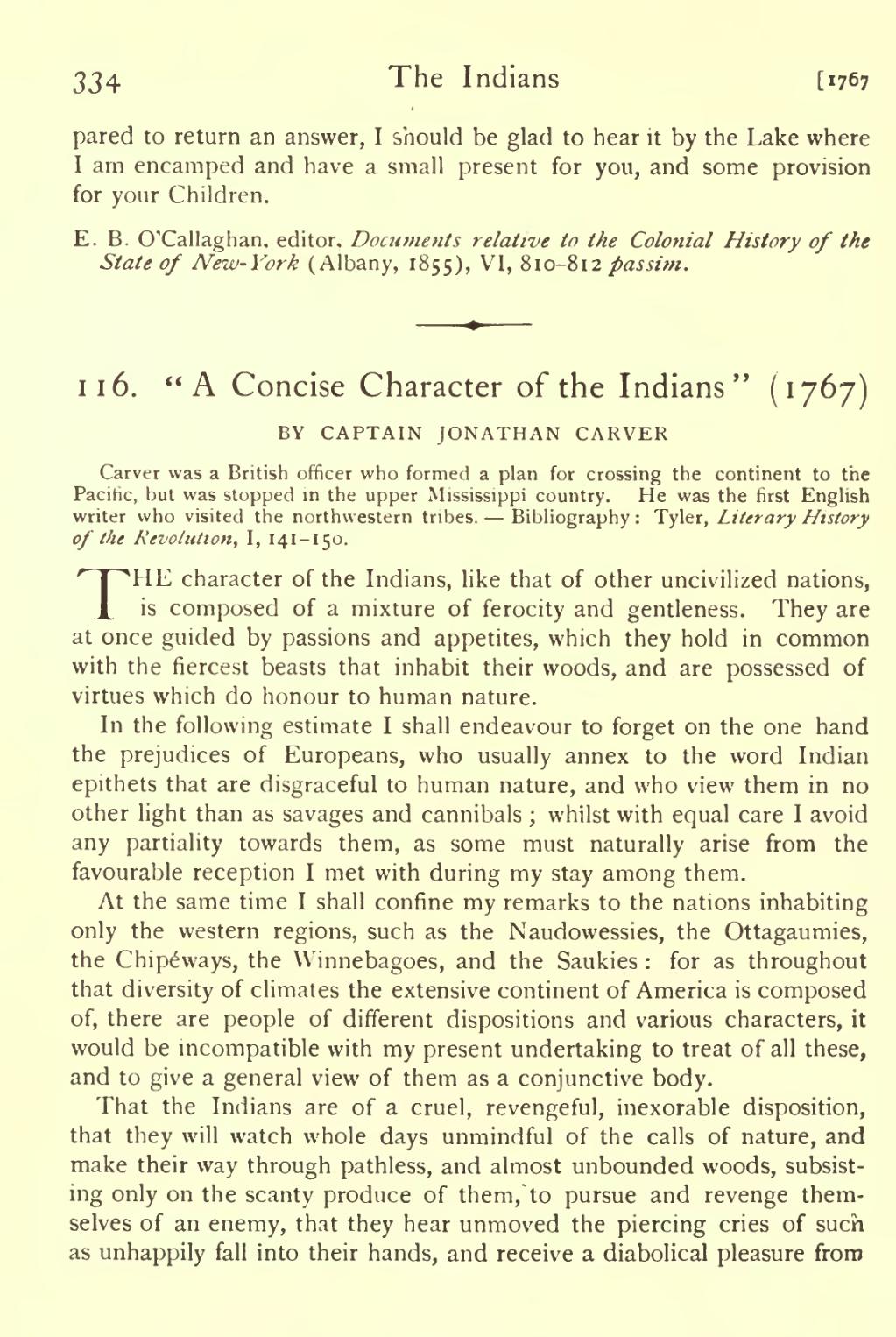pared to return an answer, I should be glad to hear it by the Lake where I am encamped and have a small present for you, and some provision for your Children.
E. B. O'Callaghan, editor, Documents relative to the Colonial History of the State of New-York (Albany, 1855), VI, 810-812 passim.
116. "A Concise Character of the Indians" (1767)BY CAPTAIN JONATHAN CARVER
Carver was a British officer who formed a plan for crossing the continent to the Pacific, but was stopped in the upper Mississippi country. He was the first English writer who visited the northwestern tribes. — Bibliography : Tyler, Literary History of the Revolution, I, 141-150.
THE character of the Indians, like that of other uncivilized nations, is composed of a mixture of ferocity and gentleness. They are at once guided by passions and appetites, which they hold in common with the fiercest beasts that inhabit their woods, and are possessed of virtues which do honour to human nature.
In the following estimate I shall endeavour to forget on the one hand the prejudices of Europeans, who usually annex to the word Indian epithets that are disgraceful to human nature, and who view them in no other light than as savages and cannibals ; whilst with equal care I avoid any partiality towards them, as some must naturally arise from the favourable reception I met with during my stay among them.
At the same time I shall confine my remarks to the nations inhabiting only the western regions, such as the Naudowessies, the Ottagaumies, the Chipéways, the Winnebagoes, and the Saukies : for as throughout that diversity of climates the extensive continent of America is composed of, there are people of different dispositions and various characters, it would be incompatible with my present undertaking to treat of all these, and to give a general view of them as a conjunctive body.
That the Indians are of a cruel, revengeful, inexorable disposition, that they will watch whole days unmindful of the calls of nature, and make their way through pathless, and almost unbounded woods, subsisting only on the scanty produce of them/to pursue and revenge themselves of an enemy, that they hear unmoved the piercing cries of such as unhappily fall into their hands, and receive a diabolical pleasure from
